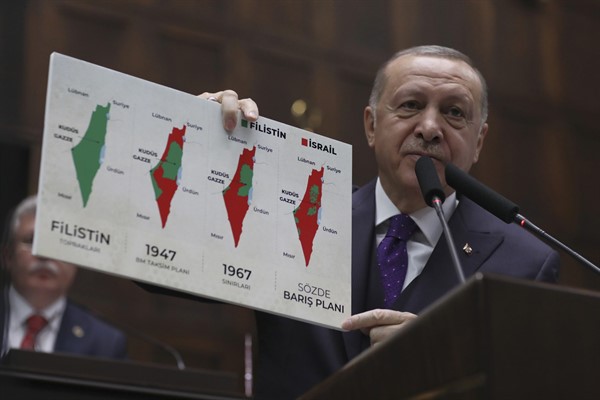Recent signs of a thaw in ties between Israel and Turkey after a decade of frosty relations are yet another reflection of how the Middle East’s changing regional order is not only leading to the emergence of new relationships, but also to adjustments in old ones. The thaw is in part the result of a regional realignment that has left Ankara more isolated, but it is also being driven by Israel’s shifting priorities and Turkey’s urgent economic and political challenges.
While Israel and Turkey are publicly moving in the right direction, the new reality—which has made this relationship more important to Turkey than to Israel—renders the durability of any rapprochement more dependent on President Recep Tayyip Erdogan’s calculations than on an Israeli desire to mend ties with its oldest Muslim-majority diplomatic interlocutor.
Despite a number of attempts, the bilateral relationship has never recovered from the fallout of the 2010 Mavi Marmara incident, when Israeli soldiers boarded ships of a Turkish civilian flotilla as it attempted to break Israel’s blockade of the Hamas-controlled Gaza, killing nine activists on board. A conciliatory call in 2013 between then-Israeli Prime Minister Benjamin Netanyahu and Erdogan—famously made from the airport tarmac under the watchful eye of then-U.S. President Barack Obama—as well as a 2016 reconciliation agreement amounted to false starts.

